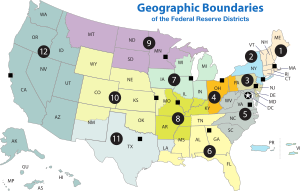Governments have always done this. The record of history is a record of slavery and oppression, dire poverty, discontent, and the general futility of human aspirations. All of which has been and is being paid for by the citizens, especially those who are not members of a favored group.
America historically has been something of a relief from this terrible vicious cycle. Government activism has been up and down, with consequences accordingly. Usually, whenever government makes a law, people’s freedom is diminished. Whenever the government feels a “philanthropic” urge to help someone, it does so, unjustly, at the expense of someone else.
President Barack Obama’s view of government, do not doubt, is the same as that which Rep. Pete Stark (D-CA) expresses here:
That is, contempt for the citizens and, especially, the Constitution. This brazen arrogance and oppressive mentality must be stopped in the elections of 2010 and 2012. If it isn’t, there will be hell to pay. Citizens of America are not yet the docile socialist subjects one may find in other countries, and are not yet willing to become such. There is a line which the government cannot safely cross, and the “ruling class” is heading toward it at considerable speed.
But Obama’s contempt for the hated founding documents reflects attitudes that long predate these documents. To Obama and the “progressives,” the population represents a passive mass of ignorant and helpless guinea pigs on which the greatly enlightened and highly-educated (in the elite schools) elite may work their social experiments.
These experiments include Obama’s fascist-socialist agenda (with programs such as Obamacare) which calls for getting everyone in line with the state’s great program at the expense of their individual interests, and also for the trampling of individual rights. It calls for forced redistribution of income and wealth under the assumption that the rich got that way by mistreating the poor, and it’s time the rich (other than Obama’s big supporters) found out what it’s like to do without. And to hell with the economy. If people are without jobs, that must be the fault of the previous administration, which gave tax cuts to the rich.
Fascists like Obama believe that individual rights are dispensed by government as the rulers may desire.
Patriotic Americans recognize that their unalienable rights come from God and not man. Government cannot take away these rights, they can only try to force people not to exercise them. To the regime that’s in power now, it is not necessary to observe the rule of law, only to manipulate things so as to twist the law to their own desire. Thus we have government takeovers, trampling of the rights of states (such as Arizona, but also Texas and others, with more to come). If one of their pronouncements is overturned in court, they simply make another similar pronouncement worse than the first (as with the offshore drilling moratorium).
Many Americans are waking up to the fact that government must be watched and kept in check. The Tea Party movement is perhaps the most visible evidence of this. With the current government merrily spending its (and our) way to fiscal hell, people are beginning to question whether endless debt is a good idea. Pete Stark, who fancies himself to be some kind of economist (maybe like Paul Krugman) believes debt only demonstrates wealth:
How does this insufferable person keep getting elected?
Be that as it may, here you have Keynesianism in a nutshell, complete with the arrogance.
Bastiat’s The Law explains the way government plunders the people:
Sometimes the law defends plunder and participates in it. Thus the beneficiaries are spared the shame, danger, and scruple which their acts would otherwise involve. Sometimes the law places the whole apparatus of judges, police, prisons, and gendarmes at the service of the plunderers, and treats the victim – when he defends himself – as a criminal. In short, there is a legal plunder…. [1]This is the situation we have with both government takeovers of industry and with corporate welfare. Those who execute these things and those who end up operating the taken-over or “benefited” entities are the robber barons of our day, whether they are Obama and the new board of directors and executives of GM or Dallas Cowboys owner Jerry Jones getting the taxpayers to finance his business, or any number of less publicized examples. As I have repeatedly said (in agreement with Ayn Rand – video here), economic abuses in the private sector almost always involve collusion with government. This includes labor unions as well. These things fly in the face of justice, not to mention the free market.
The American Republic has been history’s most successful attempt at a nation that recognizes and protects rather than denies and violates individual liberty (although with a good many notable failures), in contrast to the rest of the world, some nations of whom have seen America as a great example.
We are not as far from tyranny as we need to be. The next few years are going to require some very astute and bold decisions and actions on the part of patriotic Americans if we are to keep the liberty we’ve enjoyed for so long. Even now it is being seriously eroded. One Nation under God (who gave us our rights) needs to confront the ruling socialists and fascists who recognize no rights but their own.
[1] Frederic Bastiat, The Law (originally published in 1850), translated by Dean Russell, New York: The Foundation for Economic Education, 1950, 15th printing, 1990, page 21.
Picture: Portrait of Frederic Bastiat found at Wikipedia. (Public domain)





